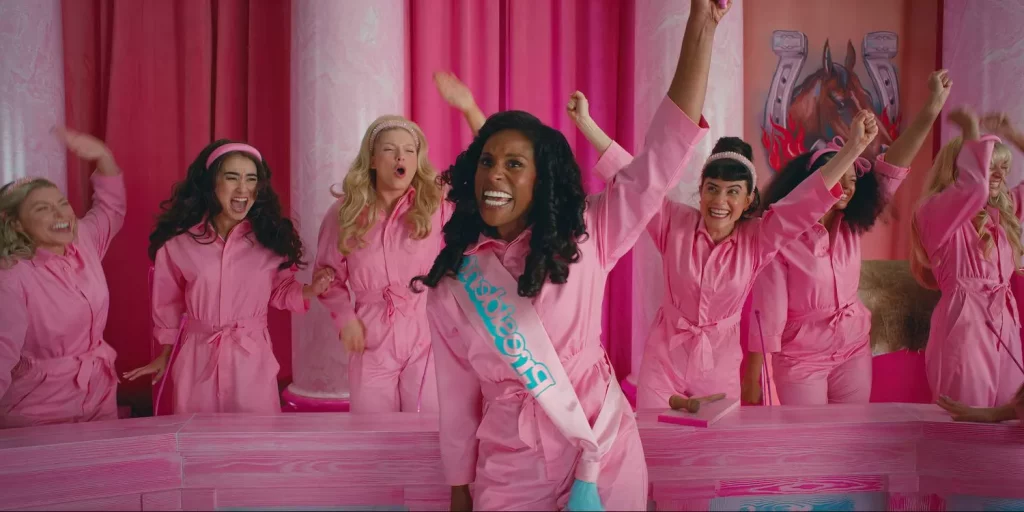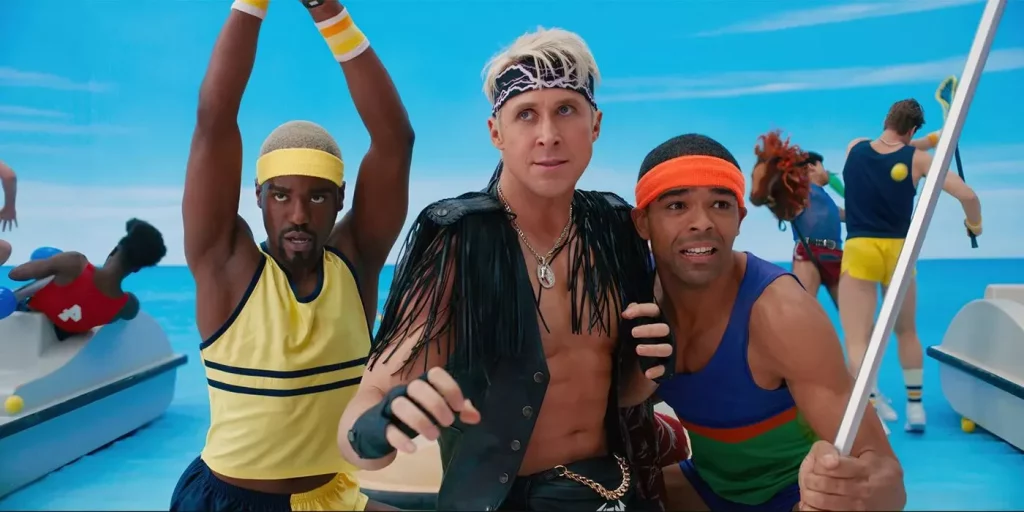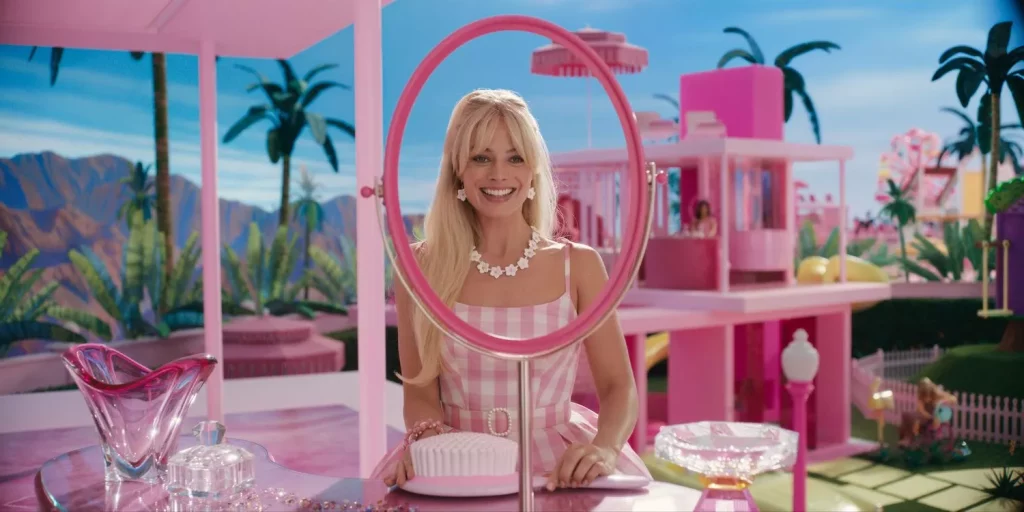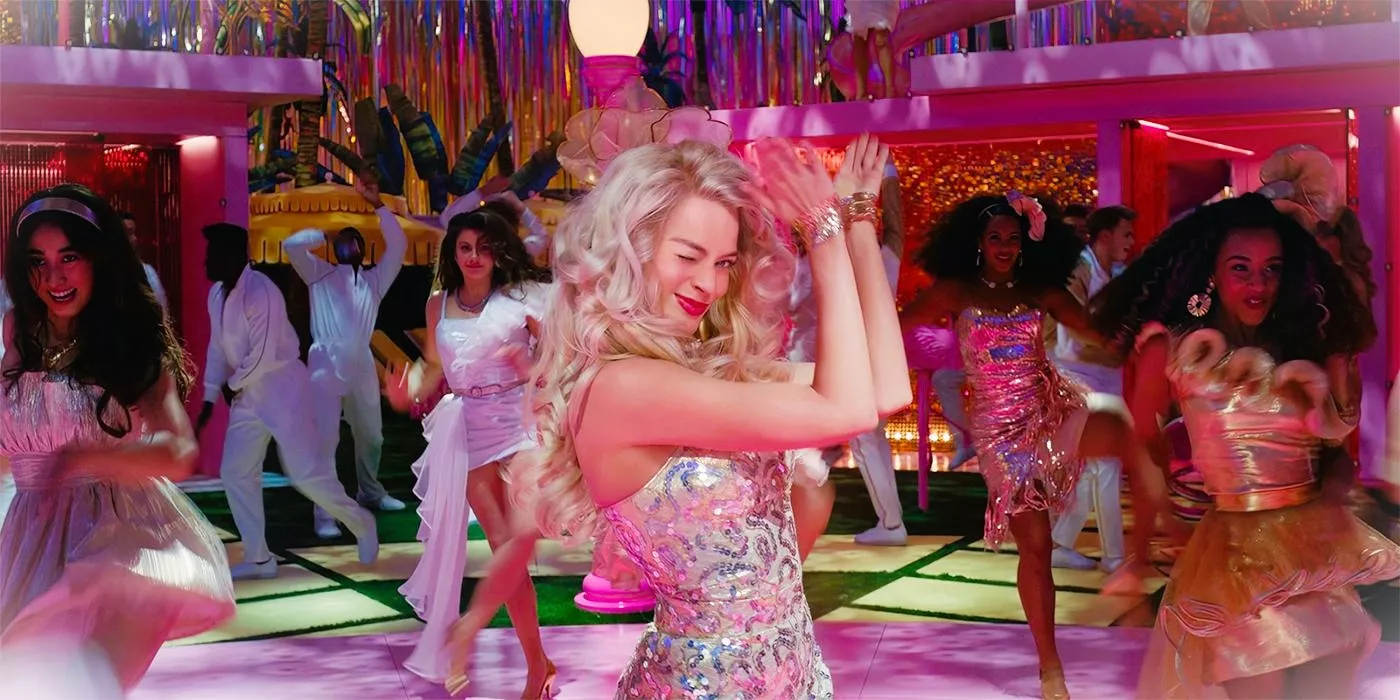Mattel’s renowned doll has always been a widespread yet somewhat indulgent concept. Over the years, the creators of Barbie have consistently strived to modernize her appearance and diversify the lineup to cater to consumers’ evolving preferences. With a remarkable collection of over 40 animated movies, Barbie has nestled herself into the hearts of young girls. However, her public image has often been criticized for perpetuating stereotypical femininity and an anti-feminist stance.
Enter Greta Gerwig’s Barbie, a film that promises to challenge these stereotypes and become one of the summer’s standout hits. Thanks to the brilliant marketing efforts of Warner Bros. and Mattel, along with Gerwig’s insightful script (co-written with Noah Baumbach), the movie has gained widespread attention.
Barbie’s allure lies in the meticulous blend of mass appeal and personal depth, mirroring the essence of the iconic doll herself. The film uses moving sets and puppetry instead of CGI, imbuing Barbieland with a much-needed human touch. The actors bring life to the dolls they portray, infusing their performances with a self-aware sense of humor that invites the audience to join in on the fun.
Beneath the surface of the glittery pink exterior, there’s a profound exploration of life and mortality in every scene. The trailers have already hinted at Stereotypical Barbie’s existential crisis, portrayed masterfully by Margot Robbie. Her contemplations on death go beyond mere comedic elements; they serve as the driving force behind her journey to the Real World, where she encounters the mother-daughter duo of Gloria (America Ferrera) and Sasha (Ariana Greenblatt). As the story unfolds, Barbie’s introspective musings pave the way for a thought-provoking narrative with deeper themes.
Barbie: Music, Memes, and Meaning

Undoubtedly, every movie should have its own standalone strength, and Barbie certainly possesses that. However, its marketing, both deliberate and unintentional, also contributes significantly to its appeal. Some songs from the movie’s soundtrack have already been released, offering a glimpse into the emotional journey of the story. Yet, it’s when Barbie wakes up to the yet-to-be-released “Pink” by Lizzo that we realize there are more delightful and touching layers waiting to be discovered. The music interacts playfully with the script, almost breaking the fourth wall, and adds to the film’s humor and emotional depth when characters break into song. The movie’s original songs, skillfully produced by Mark Ronson and Andrew Wyatt, infuse Barbie with a musical essence that beckons viewers to invest in the world of Barbieland even after the credits roll.
The playful contrast between Barbie and Oppenheimer also enhances Barbie’s allure. Though the two movies appear vastly different at first glance, both explore the value of life and the meaning of death in the grand scheme of the universe. In the age of social media, it’s almost impossible to watch Greta Gerwig’s satirical dramedy without recalling the memes that connect it to Christopher Nolan‘s historical epic. Surprisingly, this connection works in Barbie’s favor, adding to its intrigue. Margot Robbie’s lead story offers escapism and enjoyment, yet it never allows audiences to forget the harsh realities of the Real World, both on and off the screen.
Gosling’s Ken: A Stellar Performance That Complements Barbie’s Journey

Ryan Gosling‘s dedication to embodying Ken has been highly praised, and his performance unquestionably lives up to the expectations. While he is not alone in the realm of Kendom, with actors like Simu Liu and Ncuti Gtawa shining in their respective portrayals of Barbie’s male counterparts, Gosling’s commitment stands out. As Barbie’s awareness grows, Ken remains blissfully oblivious, creating a humorous dynamic that eventually leads to a heartrending climax, a testament to Gosling’s acting prowess.
While Ken’s presence is crucial to the success of Barbie, there is a risk of him overshadowing Margot Robbie’s portrayal of Barbie herself. Fortunately, this concern is skillfully woven into Gerwig and Baumbach’s script, resulting in a gender-studies exploration that feels fresh and engaging without being didactic. Gerwig’s expertise as both writer and director allows her to incorporate social messages seamlessly, maintaining the film’s humor and charm, much like her previous work in “Little Women.”
Though Ken is undeniably one of the movie’s most memorable elements, his impact hinges on the interplay with Barbie. Their dynamic is what makes the film truly captivating and ensures that both characters are essential to the story’s success.
Robbie’s Performance: The Heart and Soul of Barbie

Margot Robbie’s portrayal is the make-or-break factor for Barbie. Undeniably resembling the iconic doll from our cultural zeitgeist, Robbie goes beyond mere replication. She skillfully navigates the line between playing into Barbie’s traditional stereotypes and breaking free from them, infusing each scene with a blend of sincerity and humor. The touch of saccharine sweetness she brings complements the movie’s satirical tone perfectly, and Robbie demonstrates a keen sense of when to dial it back for the film’s emotional crescendos.
However, this version of Barbie is not a standalone figure; she relies on her sisterhood to convey the movie’s broader message. Instead of attempting to embody the myriad of dolls sold in toy stores or found in animated movies, Robbie’s Barbie embraces her individuality, and director Gerwig smartly avoids forcing her into a narrow mold.
For Barbie to truly succeed, the diversity showcased in both Mattel’s toy line and the film must go beyond surface-level representation. The movie emphasizes that every woman can be Barbie because Barbie is a reflection of every woman. It dismantles the pseudo-feminist notions propagated by marketing campaigns, while simultaneously celebrating Barbie’s diverse representations, which encompass different races, abilities, and a multitude of career paths.
Issa Rae‘s portrayal of President Barbie stands out as a testament to the movie’s commitment to showcasing empowering and varied roles for women. While the film conveys the tagline “a girl can be anything or look any way,” it also acknowledges that mere words are not enough. The story doesn’t shy away from addressing the limitations of merely championing such ideas without backing them up with action.
Barbie doesn’t provide easy answers, but it plants a thought-provoking seed in the minds of its audience, sure to grow long after leaving the theater. Robbie’s outstanding performance, combined with the movie’s meaningful exploration of diversity and empowerment, solidifies Barbie as a film with substance, humor, and enduring impact.
Barbie: A Delicious Blend of Comedy and Drama, Led by Gerwig’s Vision

While Barbie could have easily settled for a lighthearted adventure with a touch of romance, it dares to reach for the coveted crown of this summer’s must-see event. Some might view this ambition as a risk, but with the surefooted direction of Greta Gerwig, anything less than a metacommentary on womanhood would have felt out of place. Barbie serves up a delightful full-course meal, starting with genuinely comedic appetizers and leading to unexpectedly dramatic entrées, all of which prove to be delicious.
Margot Robbie and Ryan Gosling deliver three-dimensional performances that truly shine, skillfully supported by Gerwig and Baumbach’s witty script. The movie not only caters to those intrigued by the deeper philosophical themes it explores but also ensures a thoroughly entertaining experience for all audiences, even those uninterested in the pink-tinted philosophy. Barbie successfully blends comedy and drama under Gerwig’s vision, making it an unforgettable cinematic journey that leaves viewers thoroughly satisfied.

